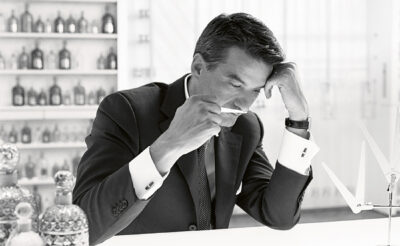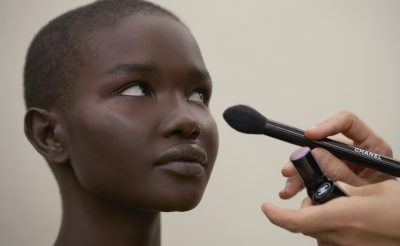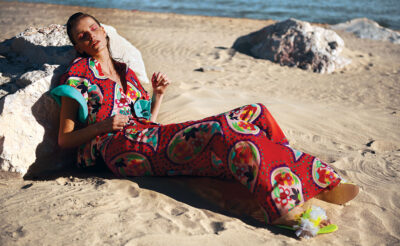Corporate giants such as Estee Lauder, L'Oreal and Coty have dominated the fragrance market, but thanks to a sudden surge in bespoke and artisanal scent offerings that could soon be about to change.
Today’s perfume fans are becoming increasingly more concerned that their scents are unique and fit their individual idea of style, rather than wearing a fragrance that’s been heavily marketed by celebrities, or is “guaranteed” to make them smell good. Consumers nowadays are also more knowledgeable and artisanal in their tastes. “Rather than shopping by traditional categories our fragrance shoppers look for specific aromatic ingredients and buy perfume based on this — particularly vetiver, rose and oud (one of the most expensive perfume ingredients in the world)”, explained Newby Hands, beauty director at Net-A-Porter.
“There is now a huge range of fragrances to choose from, but people want a scent that is special and individual. We are seeing a shift from collectivist culture, which may disregard individual needs and psychological characteristics, to a more individualistic approach, which provides opportunity for personal freedom and self-expression”, explained Lola Tillyaeva, the visionary behind The Harmonist, a recently launched maison de parfums inspired by the ancient Chinese philosophy of Feng Shui.
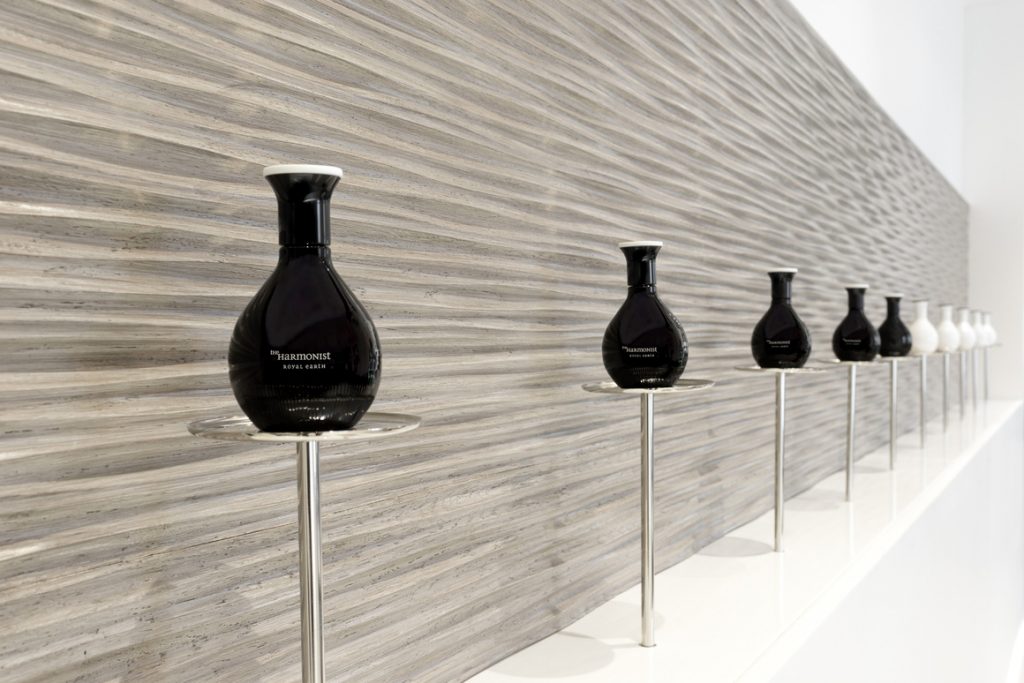
The Harmonist boutique in Paris, France
According to The NPD Group (a US based market research company), the traditional mass-market fragrance business is struggling as consumers seek fragrance brands that are more exclusive. As a result, many luxury brands have expanded into fragrances as entry points for customers because they are often more affordable than luxury goods such as bags or shoes, allowing these brands to tap into middle and lower income consumer segments. As it happens, Net-A-Porter’s top selling fragrances include “Byredo’s Gypsy Water, Tom Ford’s ******* Fabulous, Maison Francis Baccarat Rouge, and Frederic Malle’s Portrait of a Lady”, all of which would be considered luxury offerings.
Furthermore, according to a report by Coresight Research, which reviewed the latest trends in the global fragrance market, artisanal, niche fragrances are the fastest-growing segment of the fragrance category. These products are not associated with any fashion labels, designers or celebrities. Many are made with natural and exotic ingredients instead of synthetic elements and they are produced in smaller quantities by small companies and not distributed widely, but sold through limited retail formats.
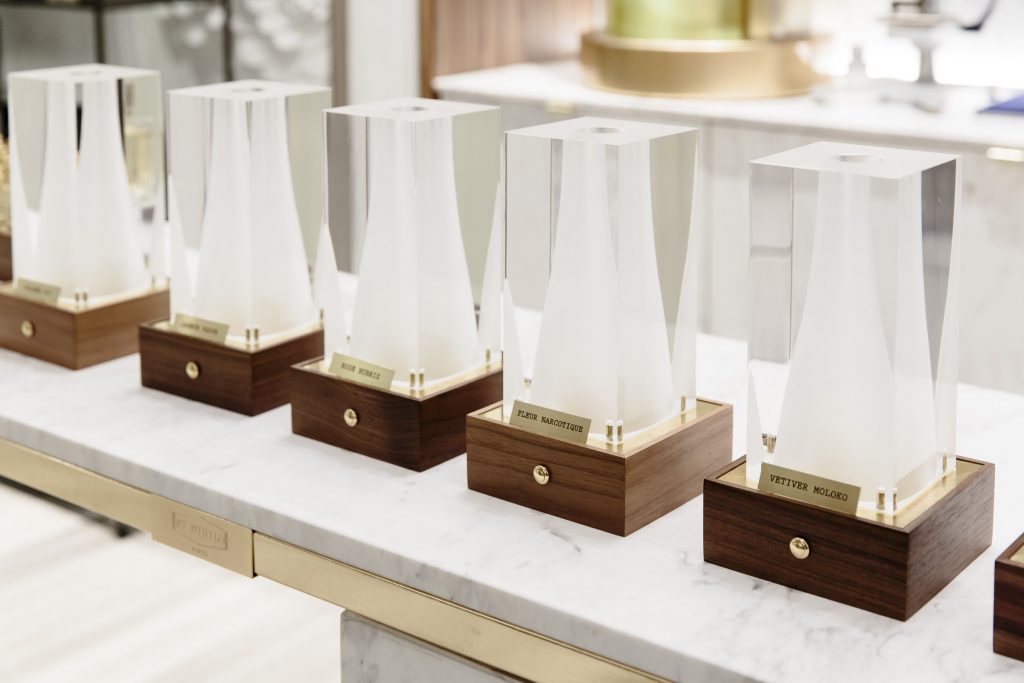
Ex Nihilo vases de senteurs (French for “smelling vases”), which light up and emit puffs of scent
After sight, our sense of smell is one of our most powerful senses as it can trigger a range of memories and emotions. Although marketers might lead us to believe otherwise, there’s no one size fits all when it comes to fragrance. “Perfume belongs to you in the most intimate manner and expresses who you are in the simplest and most universal way. It will live and evolve on your skin over time. It will be your own signature like an expression of your DNA”, said Benoît Verdier, founder of Ex Nihilo, which is an alternative Parisian perfume house that designs personalised luxury fragrances. “It is well known that the sense of smell has a powerful effect on our emotions and is intertwined with our moods and memories. A specific smell can plunge us into a flurry of memories from different phases of our life, invoking recollections so powerful and vivid it feels as though we have travelled back in time”, added Tillyaeva.
While choosing a signature scent is already somewhat personalised, and the ability to engrave perfume bottles is nothing new, bespoke perfume is now allowing customers to have a direct involvement in the specific ingredients in their new scent. At Ex Nihilo, customers work with trained perfumers to come up with their own olfactory diagnosis. From there, they will craft you your very own personalised fragrance through the use of an instrument they call an Osmologue, which allows the perfumer to weigh and blend the customers requested scents to perfection. Each bottle is then given a special ID number so they know the exact fragrance profile of your scent should you want to purchase another one at any given time.
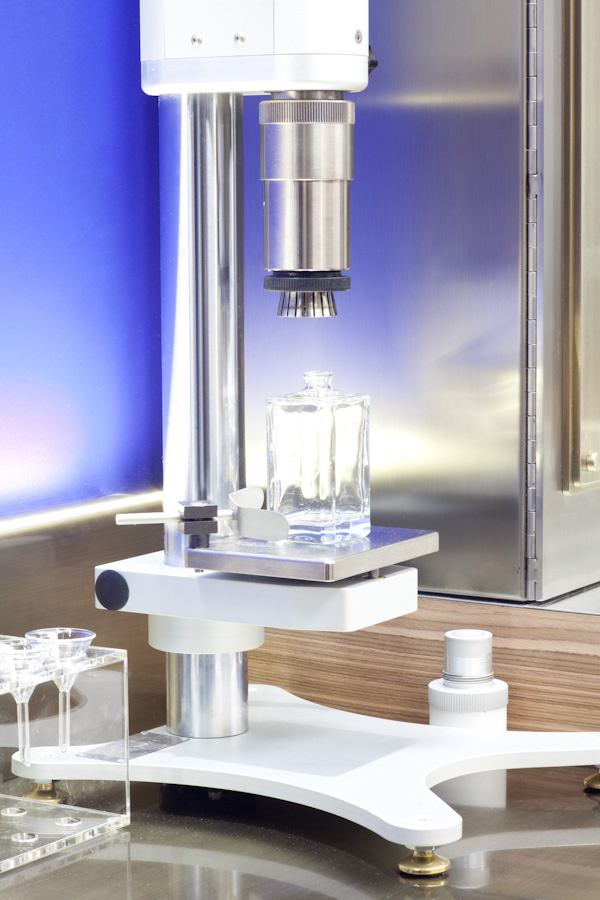
Ex Nihilo Osmologue machine
At The Harmonist, their main goal is to help their customers to choose a perfume that matches their personality traits. Each of their fragrances represents a particular element and their brand has created its own algorithm for an individual’s choice of perfume. By using the application available at their website, you can discover your personal element, the qualities associated with it, and also the scent that best harmonises your personality type and what you need at that particular point of your life journey.
Gone are the days of celebrity-endorsed scents, now consumers want individuality and they will wear what speaks to them, rather than what is marketed at them. While commissioning your own bespoke fragrance is the ultimate act of personalisation, it does come with a hefty price tag, so niche fragrances are a great way for consumers to embrace their individuality without actually writing the script.
